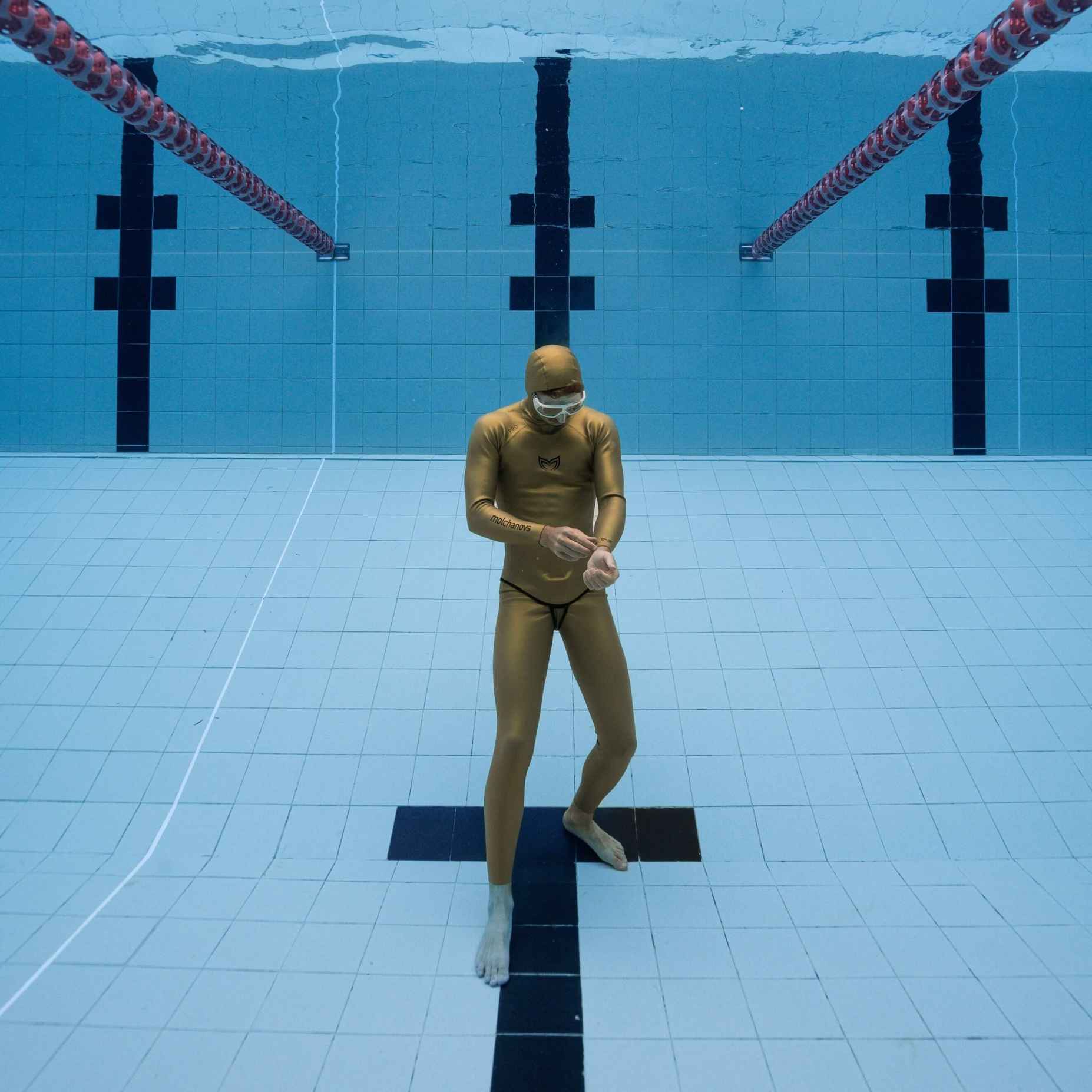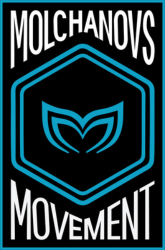Balancing Competing and Organizing in Freediving Competitions

By Thibault Guignés
Freediving, the art of descending into the depths of the ocean with nothing but a single breath, is an exhilarating sport that pushes the limits of human capability. It combines physical prowess, mental fortitude, and a deep connection with the underwater world. Organizing a freediving competition is a complex endeavor in itself, but what if you're not just the organizer but also a competitor? In this article, I explore the unique challenges and rewards of organizing a freediving competition while actively participating in it.
Freedivers are a tight-knit community that shares a passion for the sea, and they often come together at competitions to challenge themselves, set records, and connect with fellow enthusiasts.



Delegate: Surround yourself with a capable team of volunteers or co-organizers to share the workload and responsibilities. For this I really thank the teams from Panglao Depth Games and Freedive SuperHOME who came to support us and provided the safety team for our first competitions. In addition, I’m very thankful to all the safety divers that were part of the competitions in Camotes and to the judges who were also ready to share their wisdom and experience
Maintain perspective: Remember why you fell in love with freediving in the first place and keep that passion at the forefront of your mind. Especially when it was time for my own dives and the stress felt overwhelming, I would just remind myself that it had been a long-time dream for me to be able to organize my own depth competition and that I was just so lucky and grateful it was finally happening. That would do the trick most of the time.
Self-care: Prioritize self-care to manage stress and stay physically and mentally fit. Easier said than done, but definitely essential.
Seek support: Lean on the freediving community for support and advice. They can offer valuable insights and help when needed.
To conclude, organizing a freediving competition while simultaneously competing in it is undoubtedly a challenging endeavor. It demands exceptional time management, a keen ability to shift focus, and the capacity to handle stress and pressure. However, the rewards are equally exceptional, from personal growth and deepened connections with the sport to the opportunity to inspire others and leave a lasting legacy.
Ultimately, for those who are passionate about freediving and committed to both competing and organizing, the dual role can be a remarkable journey of self-discovery and contribution to the sport they love. It's a testament to the dedication and love that freedivers have for the ocean and the profound experiences it offers.
Check out Thibault’s school in Camotes, Philippines, where he holds international freediving competitions and provides a full range of Molchanovs courses and training/coaching sessions.
Instagram: @camotesfreediving
Facebook: @CamotesFreediving
Website: https://camotesfreediving.com
Freediving, the art of descending into the depths of the ocean with nothing but a single breath, is an exhilarating sport that pushes the limits of human capability. It combines physical prowess, mental fortitude, and a deep connection with the underwater world. Organizing a freediving competition is a complex endeavor in itself, but what if you're not just the organizer but also a competitor? In this article, I explore the unique challenges and rewards of organizing a freediving competition while actively participating in it.
I. The World of Freediving
Freediving is a sport that has gained immense popularity over the years, attracting individuals who seek to explore the ocean's depths in a way that connects them to nature on a profound level. It involves various disciplines, such as static apnea (holding one's breath while floating on the surface), dynamic apnea (swimming underwater for distance), and constant weight (diving to a predetermined depth and returning with the help of fins and a single breath).Freedivers are a tight-knit community that shares a passion for the sea, and they often come together at competitions to challenge themselves, set records, and connect with fellow enthusiasts.

II. The Dual Role: Competitor and Organizer
The Passionate Freediver
As a freediver, my love for the sport is what drives me. I’m constantly training to improve my skills, push my limits, and go deeper. Competing in freediving events is a way to measure mind progress and share the experience with like-minded individuals.The Event Organizer
On the other hand, organizing a freediving competition requires meticulous planning, attention to detail, and a commitment to ensuring the safety and fairness of the event. From securing permits and sponsors to coordinating safety protocols and logistics, there are numerous responsibilities that fall on the shoulders of the event organizer.
III. The Challenges
Time management
One of the primary challenges of being both a competitor and organizer is time management. The demands of preparing for your own dives can conflict with the responsibilities of managing the competition. Ensuring that everything runs smoothly while also focusing on your personal performance requires careful planning and delegation of tasks.Split focus
Freediving demands intense concentration and a clear mind. When you're organizing the event, it can be challenging to shift your focus from logistical details to the mental preparation required for a successful dive. This split focus can affect your performance and overall experience.Conflicts of interest
Competing while organizing creates a potential conflict of interest. As an organizer, you must remain impartial and ensure that all participants are treated fairly. Balancing this with your own desire to perform well can be a delicate tightrope to walk. In my competitions, I removed myself from the ranking of the competitions and made sure I could not be eligible for prizes. This ensured that there were no conflicts of interest.Stress and pressure
The stress and pressure of organizing an event can take a toll on your mental state, which is crucial for freediving. The fear of making mistakes or not meeting participants' expectations can be daunting, and it can impact your performance negatively. With the right amount of mental preparation, I found out I was not impacted that much by the stress. The challenge was more about not being too tired.
IV. The Rewards
Personal growth
The dual role of competitor and organizer can be a unique path to personal growth. It forces you to develop strong organizational skills, adaptability, and the ability to thrive under pressure. Overcoming these challenges can make you a better freediver and a more effective event organizer. I definitely learned a lot in both fields throughout the process.Deepened connection with the sport
Being intimately involved in every aspect of a competition deepens your connection with the sport. I gained a profound understanding of the challenges participants face and the joy of achieving their goals. This insight lead me to a greater appreciation for the sport's community and camaraderie.Inspiring others
Your dual role can serve as an inspiration to others in the freediving community. Demonstrating your commitment to the sport by organizing and competing can motivate fellow freedivers to challenge themselves and get involved in event organization.Legacy and contribution
Organizing a freediving competition while competing allows you to leave a lasting legacy in the sport. Your contributions can lead to the growth and development of the freediving community, leaving a positive impact for years to come.V. Tips for Successfully Balancing Both Roles
Plan ahead: Start organizing well in advance to minimize last-minute stress and conflicts with your training schedule. Especially for the first competitions - they were planned more than 6 months in advance and that was barely enough!Delegate: Surround yourself with a capable team of volunteers or co-organizers to share the workload and responsibilities. For this I really thank the teams from Panglao Depth Games and Freedive SuperHOME who came to support us and provided the safety team for our first competitions. In addition, I’m very thankful to all the safety divers that were part of the competitions in Camotes and to the judges who were also ready to share their wisdom and experience
Maintain perspective: Remember why you fell in love with freediving in the first place and keep that passion at the forefront of your mind. Especially when it was time for my own dives and the stress felt overwhelming, I would just remind myself that it had been a long-time dream for me to be able to organize my own depth competition and that I was just so lucky and grateful it was finally happening. That would do the trick most of the time.
Self-care: Prioritize self-care to manage stress and stay physically and mentally fit. Easier said than done, but definitely essential.
Seek support: Lean on the freediving community for support and advice. They can offer valuable insights and help when needed.
To conclude, organizing a freediving competition while simultaneously competing in it is undoubtedly a challenging endeavor. It demands exceptional time management, a keen ability to shift focus, and the capacity to handle stress and pressure. However, the rewards are equally exceptional, from personal growth and deepened connections with the sport to the opportunity to inspire others and leave a lasting legacy.
Ultimately, for those who are passionate about freediving and committed to both competing and organizing, the dual role can be a remarkable journey of self-discovery and contribution to the sport they love. It's a testament to the dedication and love that freedivers have for the ocean and the profound experiences it offers.
Check out Thibault’s school in Camotes, Philippines, where he holds international freediving competitions and provides a full range of Molchanovs courses and training/coaching sessions.
Instagram: @camotesfreediving
Facebook: @CamotesFreediving
Website: https://camotesfreediving.com





Leave a comment